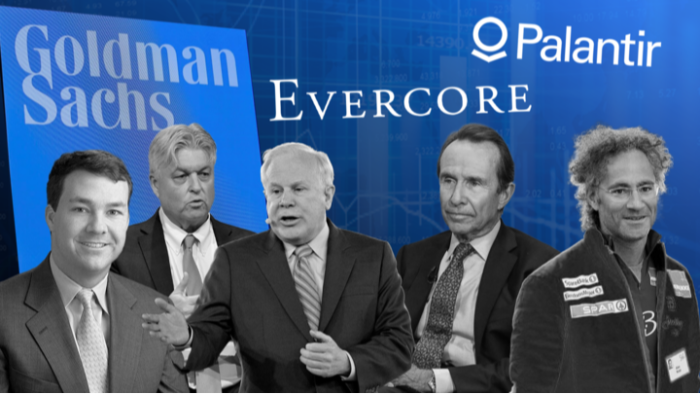Unlock the White House Watch newsletter for free
Your guide to what the 2024 US election means for Washington and the world
Record numbers of US executives are selling shares in their companies, as corporate insiders from Goldman Sachs to Tesla and even Donald’s Trump’s own media group cash in on the stock market surge that has followed his election victory.
The rate of so-called insider sales has hit a record high for any quarter in two decades, according to VerityData. The sales, by executives at companies in the Wilshire 5000 index, include one-off profit-taking transactions as well as regular sales triggered by executives’ automatic trading plans. The Wilshire 5000 is one of the broadest indices of US companies.
While insider selling is routine — especially as the stock market was already breaking records before Trump’s win — the surge following November 5 underscores how US executives are already profiting personally from his return before he re-enters the White House. The S&P 500 jumped 2.5 per cent the day after the election, its best day in more than two years. The S&P 500 is up more than 24 per cent this year.
Insider selling versus buying at financial institutions was last this high in November 2016 — the first time Trump was elected president. Selling among officials at industrial goods companies has hit the highest level since 2017.
“With the year closing and the election results, we are getting this giant burst of selling here,” Ben Silverman, vice-president of research at VerityData said. Insider selling volume was below average in the first three quarters of the year, he said.
Insider sales are often a barometer of company performance, and investors and analysts scrutinise them for clues about future results. But in a surging market when insider selling becomes rampant, the trends are less of an indicator of looming stock market moves, Silverman said.
“Generally with selling, in terms of predictiveness, insiders are early by about two or three quarters,” he said. “As they start seeing froth in the market is when they try to generate liquidity more aggressively.”
At Goldman Sachs, four insiders — including executive vice-president John Rogers, chief financial officer Denis Coleman and board member Tom Montag — have sold more than $28mn since November 6. Goldman’s shares have shot up 12 per cent since election day, benefiting from optimism over more mergers and less financial regulation under a second Trump administration.
Spokespeople for Tesla and Palantir did not respond to requests for comment. “We’re pleased with the performance of our stock,” Goldman Sachs said in a statement. “Our senior leaders continue to have significant investments in Goldman Sachs and its future. The sales are a fraction of their overall ownership.”
Evercore’s vice-chair Ed Hyman made his first ever share sales at the boutique bank in the days after the election, earning more than $40mn. An Evercore spokesperson said Hyman’s sale was purely for estate planning purposes.
Tesla’s chief financial officer Vaibhav Taneja has sold $2mn and board director Kathleen Wilson-Thompson $34.6mn since the election. Tesla’s shares have gained 35 per cent since the election, with founder Elon Musk playing a central role in shaping the cabinet appointments for Trump’s second term. Tesla’s shares gained an additional 5.6 per cent on Monday, closing at $338.74, after Bloomberg reported the incoming Trump administration may ease regulations for self-driving cars.
Some Trump loyalists have taken advantage of the post-election market surge to cash out stock. Three executives at Trump Media & Technology Group, the company behind the president-elect’s social media site Truth Social, have sold $16.2mn since November 8.
On the day after the election, the chief executive of Axos Financial, the midsized US bank that counts Trump among its largest borrowers, sold about $10.7mn of the company’s stock.
One of the biggest beneficiaries of the Trump market bump was a donor to his Democratic party rival, Kamala Harris. Palantir Technologies co-founder Alex Karp has sold about $900mn of stock since the election. The company’s shares have jumped 48 per cent since the day before the election, when it reported record quarterly income and raised revenue forecasts as demand for artificial intelligence software increased.
Looming uncertainty about Trump’s economic policies might be prompting insiders to sell now, said Swami Kalpathy, a finance professor at Texas Christian University.
With more tariffs, “there are going to be some losers [and] some industries could get hurt badly”, he said. “We have had a good run up. But the other story is that maybe the executives are expecting revisions in equity prices.”
Read the full article here

